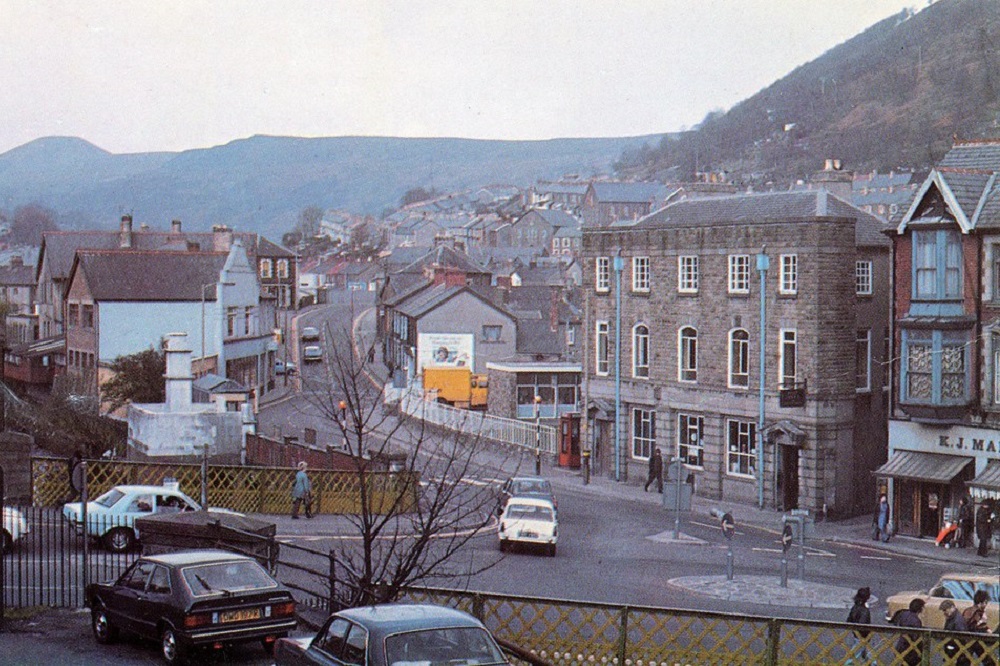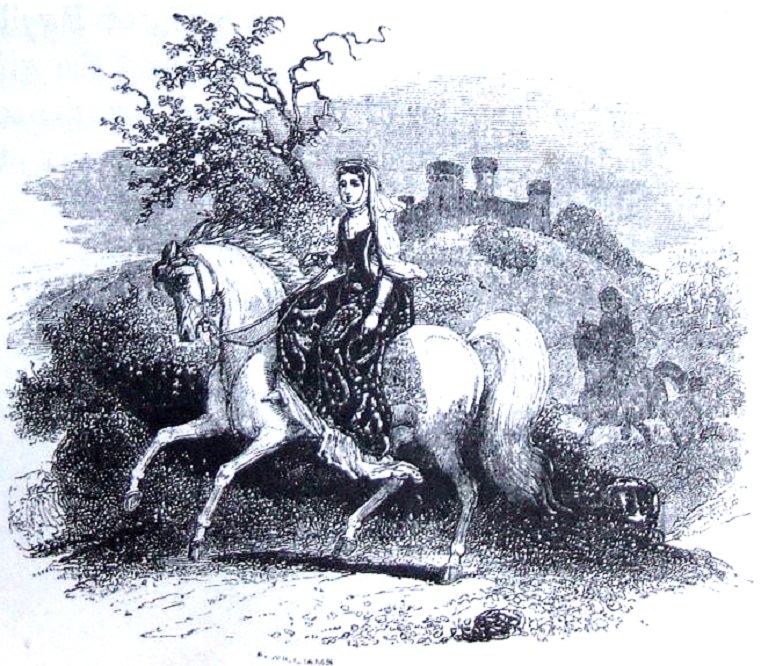Part five: The Great Welsh Auntie Novel by John Geraint

Nation.Cymru is delighted to publish the fifth part of documentary maker-turned-novelist John Geraint’s seriously playful “Great Welsh Auntie Novel” along with a reading by the author.
John Geraint
It’s Election Night, February, 1974. 17-year-old Jac is on a bus journey up the Rhondda with his friends Lydia and Petra. Jac has been worrying about Petra’s boyfriend Martyn, and wishing that another friend, Catherine, was with them, so that he could ask her out. But there’s been a terrible tragedy in her family…
It had come to rain, a barrage of opal droplets pounding the windows as the bus moved on, athwart the wind, spurning the New Road, sticking to the older route up the Valley.
Athwart? Across from side to side. Not quite the apposite word, Jac realised. He’d just encountered it in a poem Martyn had told him about: ‘What softer voice is hushed over the dead? Athwart what brow is that dark mantle thrown?’ Shelley’s Elegy on the Death of Keats.
Jac had a gift for memorising poetry. It was useful come exam time. And for impressing Catherine. Catherine, Catherine, Catherine. Her step-brother. Her dead step-brother. Beyond the reach of words now.
Silence is the only message. Who’d said that? It wasn’t Shelley. His Auntie perhaps. Or maybe she would say it, one day. It sounded like her.
Elusive love
The bus was passing the Ivor Hael. Jac approved of the pub name, a rare nod to South Wales’ pre-Industrial past. Ifor Hael, Patron of Bards.
Ivor the Generous, rather than Ivor the Engine, though the pub was right next to Llwynypia railway station.
Ifor ap Llywelyn ab Ifor ap Bledri ap Cadifor Fawr.
It had amused Jac to learn by heart this full chain of ancestry. He could rattle it off like a proper Welsh-speaker and annoy practically all his friends. He was tempted to do so now. But he could imagine Petra and Lydia’s response.
Truth was, though he prided himself on his affinity with the language, Jac’s grasp of Welsh was still rudimentary. For A level, they’d begun to study the Mabinogion.
Reading Charlotte Guest’s famous translation, he’d been enchanted by an incident in the First Branch.
There was a kind of false start to the whole saga: the King of Annwn, the Underworld, changes places with Pwyll, the Prince of Dyfed, so that he can beget, in some original telling of the myth, a Wonder Child on an earthly mother, or so the introduction in Jac’s textbook claimed.
But in the version that survives, that never happens. Instead, Pwyll returns to Dyfed and falls in love with a beauty, Rhiannon, who he sees, day after day, riding on a shining white stallion.
She trots by at a stately pace, but every time Pwyll gallops harder and faster to try to catch up with her, the further from him Rhiannon gets.
Jac had become smitten with this marvel of elusive love, the more unreachable the more she’s desired. It turned out that all Pwyll had to do to get her to stop was to ask her.
But the first time Jac read it, it left him thinking When is this bloody story going to start?
“Pardon, beaut’?” That was Petra.
“When is this bloody story…” Jac stopped. He’d spoken his thoughts aloud.
How stupid. Gauche, Martyn would have said… but there was something in that tale from the Mabinogion, something to do with his repeated failure to ask Catherine to go out with him, something he did want to explore with Petra and Lydia.
“I was just thinking… When we’re older, much older, we’ll look back on our lives and see that there’s been a story to them, right? But when does that story begin?”

Agency
The girls exchanged a glance. Another of Jac’s musings. He went on, regardless.
“We’re born. We spend years and years with our parents, we depend on them, and they ‘bring us up’. But that’s not really our story: it’s their story. They’re making the choices, deciding what we do, how we dress, where we go… even what we believe…”
Unless they have a stubborn beggar of a child like you, Jac could hear his Auntie saying in response to that. But he went on…
“Our parents decide what’s important, showing us, telling us what to do, no matter what we think. We’re stuck in their way of living, because that’s all that we know, all we can see. We have no choice, no real freedom, no power, no…”
“No agency.” It was Lydia who’d found the word. The apposite word.
“Yes, that’s right, Lydia. No agency. So when does that begin? When do you start being… an agent?”
It was a strange phrase. Maybe Lydia’s wasn’t the right word after all. Jac decided to press on.
“When do you start being the author of your own life? That’s what I was trying to say. About a story.”
He wasn’t getting much of a response. But he felt committed now.
“For you and Martyn, Petra, you have begun your story: you’ve made a choice about each other. But for me…”
Was it alright to say that about Martyn and Petra? Despite what he’d sensed about Martyn’s mood? Well, he’d said it now. Then, he remembered, just in time, that Lydia didn’t have a boyfriend…
“…for me, and maybe you’re different, Lydia… and I think you are, you’re more… grown up already, more comfortable with yourself and your place in the world… but for someone like me, who’s confused about a lot of things, and trying to puzzle them out, all I’ve got is… all I’ve got is what’s going on inside my head.”
“You’ve got us,” said Petra, kindly. “The Friends.”
“That’s true. And I wasn’t forgetting that. It’s what keeps me sane. To the extent I am…”
Habitual trap
He could feel himself losing his nerve, losing confidence in whether he was making sense, falling into his habitual trap of self-deprecation.
“What I’m trying to say is… things happen to me. Fair enough, they do to everyone. At school. In the house. With you lot. When I… when I go to chapel with my parents. But none of it hangs together. It doesn’t add up to anything, it doesn’t go anywhere: there’s no story, just a jumble of incidents.
“Take tonight: we got on this bus in ’Pandy, now we’re in Llwynypia, and at some point, unless we sink, which is quite likely by the looks of it, we’ll arrive in Treorchy. There’s a progression, a linear progression. But in my life, it feels like we might have got as far as this, but next moment the bus will be back down on Pandy Square again.”
In fact, it was worse than that. It was as though he’d jump on a bus to Treorchy only to find he was halfway to Ponty on a train…
But he sensed that Petra was about to ask him what it was that his Mam put in those marmite sandwiches he lived on, that made him think in such weird ways.
The bus had stopped at Partridge Square, opposite the Hospital entrance. A boarding passenger came and sat right opposite Jac.
The newcomer was no Rhiannon: a solitary pensioner, a faded scarf knotted under her chin, returning home from Visiting Hour or off to Bingo. Why had she chosen that seat? Plenty of others were free. Perhaps she needed company.
Whatever, her presence put a stop to the conversation. Jac was frustrated. But relieved too… What was it he’d been trying to say about his ‘story’?

Bookends
Unbidden, a new song began playing on the jukebox of his mind. A melody that old woman would know, Tipperary; but with words that had been sung on this road, right here, on the only protest march he’d ever been on, for all his radical pretensions.
It was impressive enough, mind: thousands demonstrating against the closure of the Rhondda’s only Casualty Unit here at Llwynypia, and the centralising of emergency services miles away at East Glamorgan Hospital, beyond Pontypridd.
They’d paraded down to Pandy Square, and on to a public meeting in Judge’s Hall: nurses and miners carrying banners, doctors and housewives, schoolchildren like himself.
It was two years ago, the first time he’d set eyes on Catherine. He knew nothing about her then, didn’t know that she was another of the Bad Girls of the B Form.
He was just struck by her presence. She seemed older than her years, much older than him. She was there, he learned later, because her mother had died waiting for an ambulance.
With other teenagers, they’d linked arms and joined in with the chanting and singing.
It’s a long way to East Glamorgan, it’s a long way to go.
It’s a long way to East Glamorgan, and the roads are awful slow.
Goodbye Llwynypia, farewell Partridge Square,
It’s a long, long way to East Glamorgan –
You’re dead ’fore you’re there.
It must have been hard for Catherine to sing those words, but at the time it was the cleverness of the parody that struck Jac. He wondered who’d thought it up, and how all those marchers had got to learn it.
It was a glorious cause. And a total failure. All that was left at Llwynypia now were the bookends of life – the geriatric wing, and the maternity unit where Jac himself had been born, seventeen years ago.
They’ll put your plaque on the wall one day, his Auntie was always telling him (“a plaque, not my plaque” – but he’d given up correcting her).
The Great Welsh Auntie Novel by John Geraint is published by Cambria Books and you can buy a copy here or in good bookshops.
You can catch up on previous extracts here. We’ll have another exclusive extract next week.
Support our Nation today
For the price of a cup of coffee a month you can help us create an independent, not-for-profit, national news service for the people of Wales, by the people of Wales.





